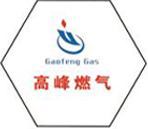
8 月 . 09, 2024 05:30
Back to list
Effective Filtration Methods for Enhancing Natural Gas Purity and Quality in Energy Production
Natural Gas Filters Ensuring Efficiency and Safety
Natural gas is one of the most widely used energy sources in the world today, providing fuel for heating, electricity generation, and transportation. However, before natural gas can be used in homes and industries, it must undergo several treatments to ensure its purity and safety. One crucial component of this process is the use of natural gas filters. These filters play a pivotal role in keeping natural gas clean and efficient.
Natural gas, as it is extracted from the ground, often contains impurities such as dust, water, sulfur compounds, and even heavy hydrocarbons
. If these impurities are not removed, they can cause significant problems, including corrosion of pipelines, reduced efficiency in combustion processes, and even damage to engines and appliances that rely on natural gas. This is where natural gas filters come into play.Filters for natural gas are designed to remove solid particles and liquids from the gas stream. They can be categorized into several types, including coalescing filters, particle filters, and activated carbon filters, each serving a different purpose. Coalescing filters, for example, are essential for removing water and oil droplets from the gas. They work by allowing smaller droplets to merge into larger ones, which can then be drained away, preventing water from causing corrosion within the system. Particle filters, on the other hand, are used to capture solid contaminants such as dust and sand, protecting downstream equipment from wear and potential failure.
natural gas filter

One of the most significant advancements in natural gas filtration technology is the development of activated carbon filters. These filters utilize the high surface area of activated carbon to adsorb volatile organic compounds (VOCs) and other harmful substances from natural gas. By doing so, they help to improve the quality of the gas and reduce harmful emissions when the gas is burned. As public awareness of environmental issues increases, the use of such advanced filters becomes more critical in ensuring compliance with regulatory standards.
In addition to protecting equipment and ensuring efficiency, natural gas filters also play a vital role in safety. Natural gas is highly flammable, and impurities in the gas can lead to dangerous situations. For instance, the presence of hydrogen sulfide—a common impurity—can pose severe health risks to workers and the community. Effective filtration systems that remove harmful gases help mitigate these risks, ensuring that natural gas remains a safe energy source.
To maintain the efficiency and reliability of natural gas filters, regular maintenance and monitoring are essential. Filters can become clogged over time with the very impurities they are designed to remove. This can lead to increased pressure drops and reduced flow rates, which can affect the overall performance of the natural gas system. Operators must routinely check and replace filters as needed to avoid operational issues and ensure a steady supply of clean gas.
In conclusion, natural gas filters are essential components in the natural gas supply chain, contributing to the efficiency, safety, and environmental sustainability of this vital energy source. As the world continues to seek cleaner alternatives to fossil fuels, ensuring that natural gas is free from harmful impurities will play a critical role in its ongoing viability. By investing in advanced filtration technologies and maintaining effective filtration systems, we can harness the full potential of natural gas while minimizing its environmental impact and protecting public health.
Latest news
-
Unlocking The Quality Gas Pressure ReducersNewsNov.01,2024
-
The Role of Gas Pressure Reducing StationsNewsNov.01,2024
-
The Importance and Functionality of Safety Relief ValvesNewsNov.01,2024
-
The Essential Role of Safety Valves in Natural Gas ApplicationsNewsNov.01,2024
-
The Essential Role of Gas Pressure RegulatorsNewsNov.01,2024
-
Enhance Your Premium Gas FiltersNewsNov.01,2024

